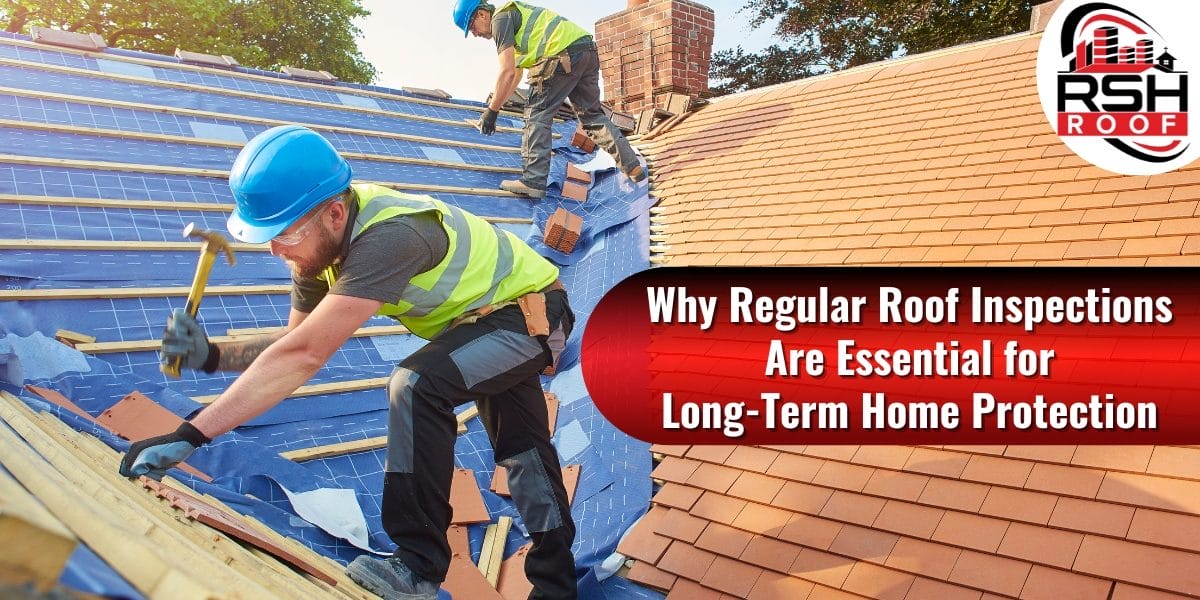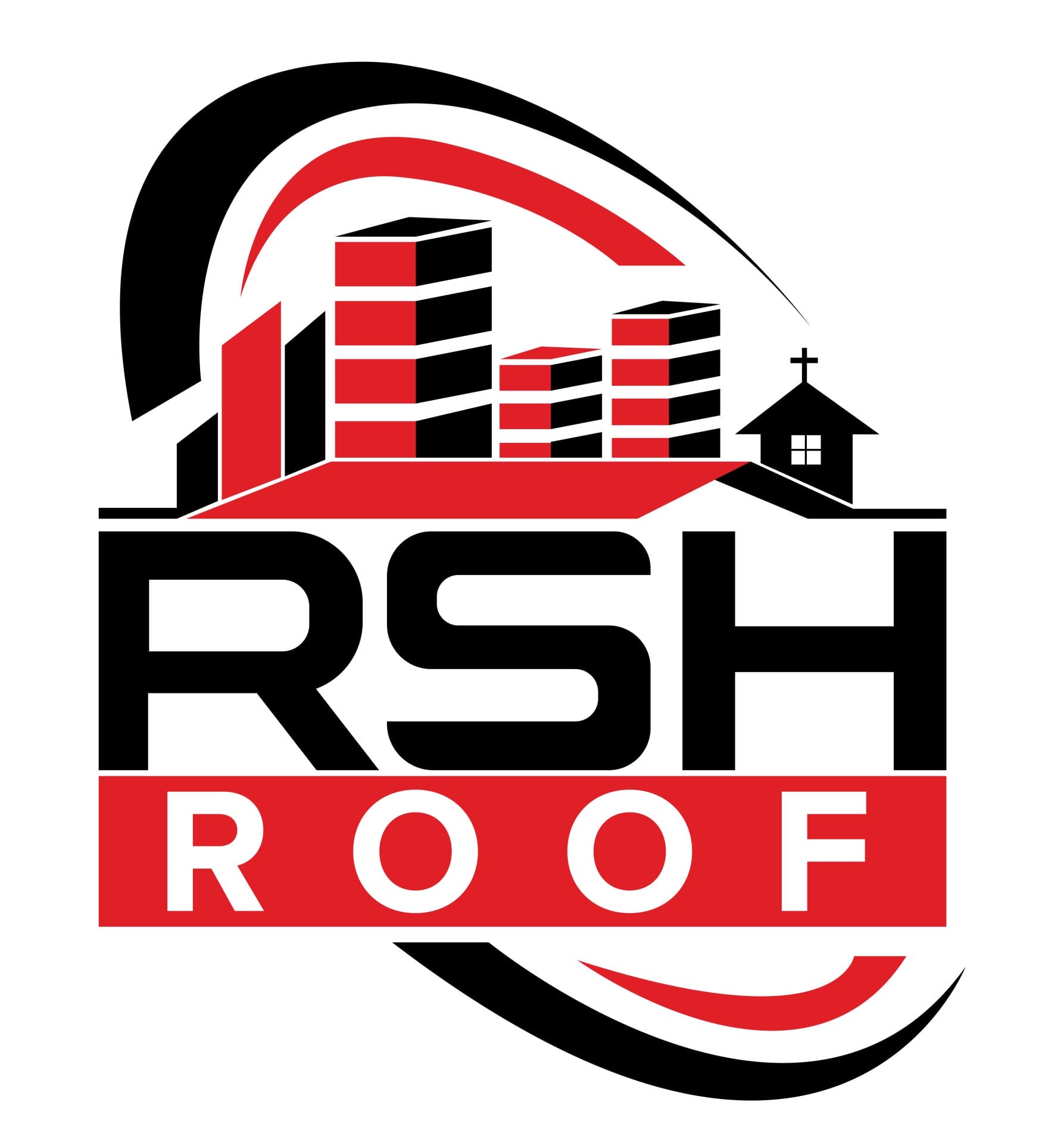RSH Commercial Roofing is a Professional Engineering & Construction Company with 25+ years of experience that specializes in Commercial & Residential Roof Inspections, Repair/Replacement services as well as commercial roofing insurance claims.

Why Regular Roof Inspections Are Essential for Long-Term Home Protection?
Your home’s roof is the first defense against harsh weather, UV rays, and environmental elements. However, many homeowners overlook its maintenance until serious issues arise. Regular roof inspections help detect minor problems before they turn into costly repairs, keeping the motive, “Your Roof Remains in Top Condition for Years.”
Well! Why are regular roof inspections essential for long-term home protection? What do they involve? How could they save you money in the long run? This submission holds the answer of professional roof contractors and certified roof inspectors who can help maintain your home’s safety. Let’s have their answers!
The Importance of Regular Roof Inspections
A roof inspection isn’t just about spotting leaks—it’s about the structural integrity of your entire home. Why should you schedule periodic roof checkups:
- Prevent Costly Repairs: Early detection of damage reduces roof replacement expenses.
- Extend Roof Lifespan: Routine roof maintenance prevents wear and tear, making your roof last longer.
- For Safety: Weak or damaged roofs can collapse, seriously threatening residents.
- Increase in Property Value: A well-maintained roof increases your home’s resale value.
- Energy Efficiency: Proper insulation and sealing reduce heating and cooling costs.
Ignoring inspections can lead to significant issues, such as roof leak detection failures, mold growth, and structural damage.
What Professional Roof Inspectors Look For During Inspection?
A thorough roofing process involves multiple steps to check different roof components.
1. Structural Inspection
- Examines sagging, uneven roof surfaces, and poor structural integrity.
- Checks for broken or missing rafters and trusses.
2. Material Inspection
- Identifies cracked, missing, or curling shingles.
- Look for rust on metal roofs or signs of wear in tiles.
3. Interior Inspection
- Examines ceilings, attic spaces, and walls for water stains.
- For proper ventilation to prevent moisture buildup.
4. Roof Leak Detection
- It uses infrared technology or manual checks to find leaks.
- Locates weak spots where water night penetrates.
5. Drainage Check
- Look for gutters and downspouts that are clear of debris.
- It prevents water pooling, which can lead to leaks.
How Often Should You Get a Roof Inspection?
The frequency of regular roof inspections depends on factors like weather conditions, the age of the roof, and material type. A general guideline:
- Annually—Ideal for all homes to catch early signs of damage.
- After Severe Storms—High winds and heavy rain cause hidden damage.
- Before Buying or Selling a Home—No surprises in real estate transactions.
- If you Notice Leaks or Damage—Immediate inspections prevent further deterioration.
Commercial roof inspections are recommended at least twice a year for commercial properties.
Signs You Need a Roof Inspection Immediately
If you notice any of these signs, schedule an inspection right away.
- Water stains on ceilings or walls
- Missing or cracked shingles
- Sagging or dipping roof sections
- Mold or mildew growth
- Unusually high energy bills (due to insulation problems)
- Debris or granules in gutters
Cost of Roof Inspections & Long-Term Savings
The cost of regular roof inspections depends on various factors, including the size, location, and condition of your roof. On average, homeowners can expect a standard inspection. However, advanced or infrared scanning may cost more.
Why Is it Worth it?
- It avoids expensive roof inspection cost, which can cost thousands of dollars.
- Identifies problems early, saving money on emergency repairs.
- Helps with insurance claims if storm damage occurs.
Drone Roof Inspection: The Future of Roofing Checks
Technology has transformed regular roof inspections. Drone roof inspection allows for:
- Safer, non-invasive inspections without climbing.
- High-resolution images and video for accurate assessments.
- Faster results, reducing labor costs.
Many professional roof contractors now offer drone-based inspections, making the process more efficient.
Choosing the Right Certified Roof Inspector
Not all inspectors are equal. What to look for in a certified roof inspector:
- Proper Licensing & Certification
- Experience with Residential & Commercial Roofs
- Detailed in Roof Repairs & Maintenance
Hiring the right expert gives accurate assessments and quality service.
Roof Maintenance Tips to Extend Roof Life
- Keep gutters clean—Prevents water accumulation.
- Trim overhanging branches—Avoids falling debris damage.
- Fix minor issues immediately—Small problems can worsen over time.
- Check attic insulation—For proper ventilation and prevent mold growth.
- Schedule professional inspection—A yearly checkup can save thousands in repairs.
Final Thoughts
Regular roof inspections are not just a precaution—they are a necessity for home protection. They prevent costly repairs and increase roof longevity, allowing your home to remain saleable and efficient.
By working with certified roof inspectors and experienced roof contractors, you can maintain your roof’s integrity and save money in the long run. Either you opt for traditional inspections or advanced drone roof inspection is the key to a secure and long-lasting home.
Don’t wait for leaks—schedule a roof inspection at RSH Commercial Roofing Experts today!

